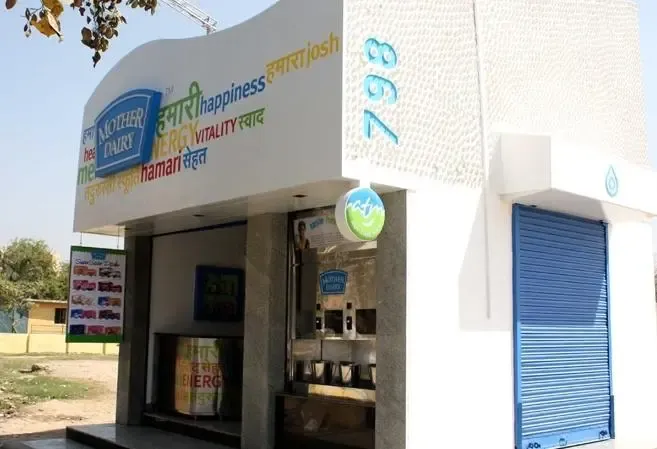Will GST Reforms Transform India's Dairy Sector and Aid 8 Crore Rural Farmers?

Synopsis
Key Takeaways
- Over 8 crore rural farmer families will directly benefit from the reforms.
- The Indian dairy sector contributes 5.5 percent to the national economy.
- Most dairy products are now subject to a 5 percent GST rate.
- The sector's market size is projected at Rs 18.98 lakh crores by 2024.
- The reforms aim to enhance competitiveness and sustainability in dairy farming.
New Delhi, Sep 5 (NationPress) The latest GST reforms are set to significantly enhance productivity and competitiveness within the dairy sector, positively impacting over 8 crore rural farmer families, as reported by government sources. This transformative initiative, endorsed by the 56th GST Council, introduces critical tax adjustments on milk and dairy products.
As the leading global producer of milk, India generated an impressive 239 million tonnes of milk in 2023–24, constituting approximately 24 percent of worldwide milk production.
Dairy stands as the most significant agricultural product, contributing 5.5 percent to the national economy. The market value of milk production reached Rs 12.21 lakh crore at current prices for 2023–24.
The overall market size of the Indian dairy sector is projected to reach Rs 18.98 lakh crores by 2024.
This reform represents one of the most extensive adjustments in GST rates within the sector, with most dairy items now either exempt from tax or subject to a mere 5 percent rate.
Previously, all dairy milk, excluding Ultra High Temperature (UHT) milk, was exempt from GST. Now, UHT milk has also been exempted to ensure similar tax treatment amongst comparable products. Additionally, plant-based milk alternatives, aside from soya milk, faced an 18 percent GST rate, while soya milk was taxed at 12 percent. The new GST rate for both plant-based and soya milk drinks has been reduced to 5 percent.
Before the tax adjustments, paneer sold in non-packaged forms was already exempt. The amendments now apply specifically to paneer that is pre-packaged and labeled, aimed at promoting Indian cottage cheese.
This vital tax reform is anticipated to invigorate the dairy industry, providing advantages to both farmers and consumers and contributing to the nation’s overall socio-economic progress.
“This reform is projected to directly benefit over 8 crore rural farmer families, especially smallholders and landless laborers involved in dairy farming for their livelihood, while also aiding a significant consumer base. Reduced taxation will lower operational costs, prevent adulteration, and improve the competitive edge of Indian dairy products in domestic and international markets,” stated government officials.









